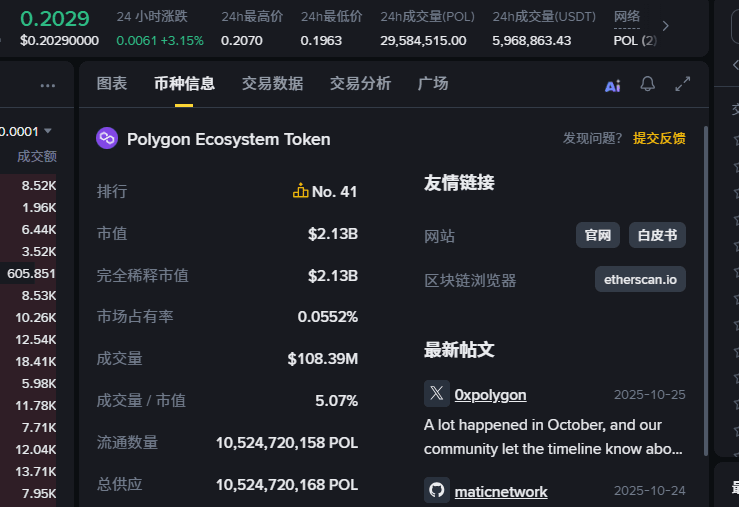Yesterday, another developer built their application chain using Polygon CDK in 3 hours. This is already the 127th similar case this month. More surprisingly, 68% of the developers are experiencing blockchain development for the first time — Polygon is turning chain creation from "rocket science" into "building with Legos."
Niche point: Polygon is not a blockchain, it's the "Lego factory of Web3"
As a DeFi architect who has deployed protocols on three chains, I believe the most impressive thing about Polygon is not a specific technology, but how it has made blockchain development into a "plug-and-play" Lego set. Traditional development is like hand carving, while Polygon is like a Lego assembly line:
Standard building blocks → CDK provides pre-made modules (like Lego basic blocks)
Blueprints → Complete documentation and examples (like Lego assembly manuals)
Custom accessories → Composable smart contract library (like Lego special pieces)
Quality inspection → Automated security audit tools (like Lego quality checks)
Hard evidence (developer data speaks):
22,000 monthly active developers, with a 340% annual growth (Electric Capital data)
The number of application chains deployed via CDK has reached 189, with an average development time reduced by 85%
Among Polygon University graduates, 65% launch projects within 6 months
Technical dissection: How developers "build chains like Lego"
Using car manufacturing as a metaphor for this system:
Choose chassis → Use CDK to select zkEVM or PoS chain (like choosing a vehicle platform)
Install engine → Deploy smart contracts (like installing an engine)
Interior customization → Configure front-end and user experience (like interior design)
Road testing → One-click deployment of testnet (like vehicle road testing)
Real case: A college student's week of entrepreneurship
Computer science students participate in the Polygon hackathon
Build decentralized social applications using CDK
Received $50,000 through developer funding
Product launched within 7 days, with over 10,000 users in a month
Risk alert: The triple hazards of the Lego factory
Mold dependency: Core modules are still controlled by Polygon Labs
Homogenization risk: Many application chains use similar templates
Quality variance: Rapid development may sacrifice code quality
Future disruption: What if every developer could launch a chain
Imagine these scenarios:
College student issues their own community chain with pocket money
Small businesses manage supply chains using application chains
Every creator can have their own exclusive fan economy chain
Data shows that startups using the Polygon toolchain have a 40% higher success rate in financing—this could be the "personal computer moment" for blockchain.
Soul-searching questions
Now let's ask a heart-wrenching question: When Polygon lowers the barrier to chain launching so much, are we empowering innovation, or are we creating "assembly line workers" in the blockchain industry, causing developers to lose deep technical capabilities?
Believes in empowering innovation through 【creation】
Believes in creating assembly lines through 【mediocrity】
After 24 hours, I will privately message the (Developer Advancement Guide) to the 25 most insightful comments.
Exclusive toolkit
Technical selection decision tree: A complete guide to choosing the tech stack based on project needs
Funding application template: Practical cases to improve the success rate of Grant applications
Security self-checklist: 23 security items that must be checked before going live
Ecosystem resource map: A navigation map of all available tools and services in the Polygon ecosystem
Risk warning: New projects are advised to start on testnets and fully validate before deploying to mainnet


